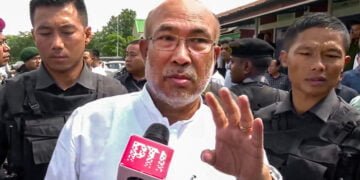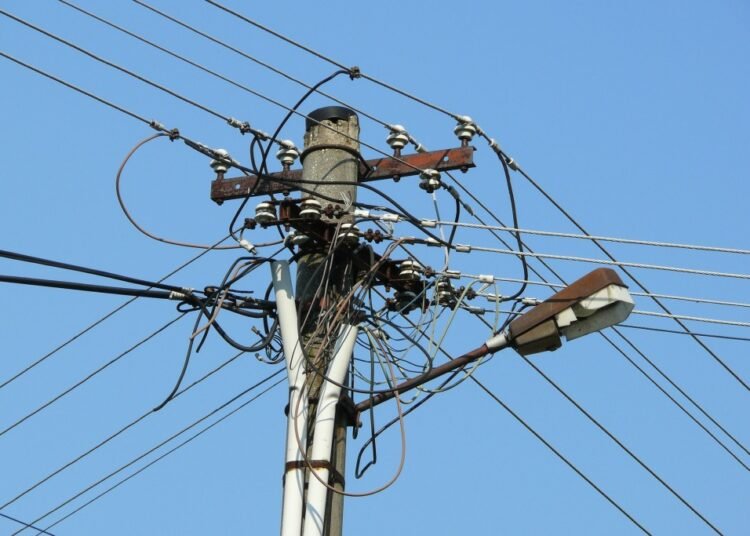In a setback for the Meghalaya Energy Corporation Limited (MeECL), the Meghalaya High Court has termed as “unsustainable” the decision by MeECL to revoke the special power tariff agreement signed between the corporation and Byrnihat industrial units.
“This unilateral revocation in the manner sought to be done by the respondent (MeECL), in the backdrop of the nature of the order of the MSERC and the mandate of the Electricity Act renders the said action unsustainable,” the bench of Justice Hararsan Singh Thangkhiew said in the order passed on July 1.
The High Court passed the order on a batch of writ petitions filed by Pawan Castings (Meghalaya) Private Limited, Sriram Wire Products(Meghalaya), RNB Cements (P) Ltd, Hills Cements Company Limited, Green Valley Industries Limited, Meghalaya Cast and Alloys Private Limited, Meghalaya Cements Limited, Ri-Bhoi Ispat and Rolling Mills, Meghalaya Steels Limited, Shillong Ispat and Rolling Mills.
The ten writ petitioners are members of the Byrnihat Industries Association (BIA) engaged in the manufacture of goods and are consumers of electricity under the MeECL.
“The authorities as placed by the respondents dealing with interference in contractual matters, cancellation of government contracts and the inapplicability of the Specific Relief Act are not applicable in the facts of the instant case and are disregarded. For the foregoing reasons, these writ petitions stand allowed and are accordingly disposed of,” the court said.
These industries under the banner of the Byrnihat Industries Association (BIA), entered into a Memorandum of Understanding (MoU) on October 7, 2020, with the MeECL for levy of special tariff for the industries and after signing of the MoU, the MeECL filed an application before the Meghalaya State Electricity Regulatory Commission (MSERC) for Special Interim Tariff proposal/offer for high tension and extra high tension industrial consumers.
The MSERC through its order passed on October 19, 2020, approved the special tariff for an initial period of three years as per the MoU between the BIA and the MeECL. Later, agreements were entered into individually on November 1, 2020 by the industries with the MeECL as per the order passed by MSERC on October 19, 2020.
Under the MoU, the MeECL will supply electricity at Rs 4.90 per kilo volt ampere hour (KvAh). The MoU received the approval of the MSERC which incorporated the same in its order on October 19, 2020, fixing the tariff below the rate which had been approved at Rs 6.6 per KvAh, for Industrial High Tension and Rs.6.2 per KvAh for Industrial Extra Tension, on the consideration that the industries would maintain a minimum load factor of 68 per cent as per the agreement.
Later, the MeECL through its letter dated October 26, 2021, issued a notice for termination of the MoU by invoking Clause 17 of the MoU, on the allegation that the industries had failed to maintain the minimum average load factor of 68 per cent. It was further stated in the notice that the MoU would stand void and invalid after a lapse of 90 days from the date of issuance of the notice.
To this notice, the BIA had made a reply and requested for withdrawal of the notice. However, the MeECL by its letter dated January 17, 2022, informed that as per the termination notice, the agreement for supply of power under the special tariff would come to an end on January 25, 2022.
It was also indicated in the letter/notice that if the industries desired to avail power from the MeECL, the same would be as per the regular/normal tariff applicable to such consumers as determined by the MSERC in its order dated March 25, 2021.
MeECL also stated that non-compliance to the notice would lead to disconnection of electricity supply from January 26, 2022.
The industries being aggrieved by the action of MeECL filed separate writ petition before the High Court challenging the notice issued by MeECL on January 17, 2022.
The main contention of the petitioners is that the notice had been issued by the MeECL in spite of the fact that individual agreements with the writ petitioners are still subsisting and had not been determined by the MeECL till date, or any action taken upon them, and that the determination of the MoU would not automatically annul these agreements.
Secondly, they said that after signing the MoU they had themselves approached the MSERC for approval of the special tariff, which was allowed by an order dated October 19, 2020 and as such, the MoU between the parties stood merged with the judicial order passed by MSERC, and for withdrawal from the said MoU, the same cannot be executed unilaterally without reference to the MSERC.
Thirdly, it was contended that under the Electricity Act 2003, it is only the concerned Electricity Regulatory Commission which can fix the tariff for supply of electricity by a distribution licensee, and as the revised special tariff as per the MoU, for a period of three years, having been allowed by the MSERC, unilateral determination of the tariff by the MeECL is not permissible in law.
























